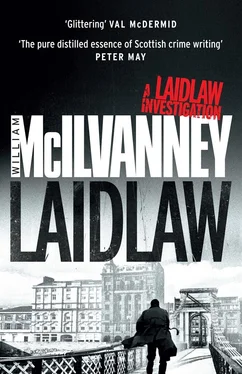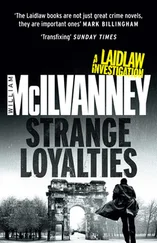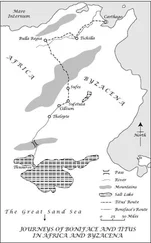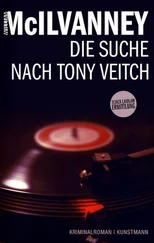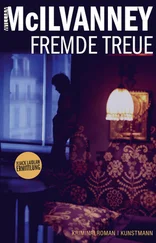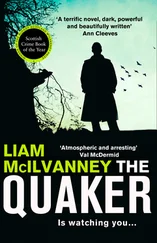William McIlvanney - Laidlaw
Здесь есть возможность читать онлайн «William McIlvanney - Laidlaw» весь текст электронной книги совершенно бесплатно (целиком полную версию без сокращений). В некоторых случаях можно слушать аудио, скачать через торрент в формате fb2 и присутствует краткое содержание. Год выпуска: 1977, ISBN: 1977, Издательство: Sceptre, Жанр: Полицейский детектив, на английском языке. Описание произведения, (предисловие) а так же отзывы посетителей доступны на портале библиотеки ЛибКат.
- Название:Laidlaw
- Автор:
- Издательство:Sceptre
- Жанр:
- Год:1977
- ISBN:0857869868
- Рейтинг книги:5 / 5. Голосов: 1
-
Избранное:Добавить в избранное
- Отзывы:
-
Ваша оценка:
- 100
- 1
- 2
- 3
- 4
- 5
Laidlaw: краткое содержание, описание и аннотация
Предлагаем к чтению аннотацию, описание, краткое содержание или предисловие (зависит от того, что написал сам автор книги «Laidlaw»). Если вы не нашли необходимую информацию о книге — напишите в комментариях, мы постараемся отыскать её.
Laidlaw — читать онлайн бесплатно полную книгу (весь текст) целиком
Ниже представлен текст книги, разбитый по страницам. Система сохранения места последней прочитанной страницы, позволяет с удобством читать онлайн бесплатно книгу «Laidlaw», без необходимости каждый раз заново искать на чём Вы остановились. Поставьте закладку, и сможете в любой момент перейти на страницу, на которой закончили чтение.
Интервал:
Закладка:
‘Is there ony word, Bud?’ she said.
He stared at the tray-cloth he had pinned above the mantelpiece, where King Billy sat on his prancing charger.
‘Ah went tae the polis.’
‘Oh, ye didny, Bud.’
‘Whit the hell wid Ah dae? Ma lassie’s missin’.’
‘What did they say?’
He sat down and stared at the fire.
‘By Christ, there better be somethin’ wrang wi’ ’er efter this.’ He looked at the clock. It was a quarter to seven. ‘If there’s no somethin’ wrang wi’ her the noo, there’ll be somethin’ wrang wi’ her when Ah get ma haunds oan ’er.’
‘Don’t say that, Bud.’
‘Shut yer mooth, wumman.’
His silence filled the shabby room. He took off his scarf and dropped it on the chair behind him. Sadie sat rocking very gently, making a cradle of her worry. He looked across at her. She looked so gormless that a suspicion formed in him slowly.
‘Ye widny know anythin’ that Ah don’t, wid ye?’
‘Whit d’ye mean?’
‘Ye know whit Ah mean. She’s never done anythin’ like this in her life afore. She’s no up tae something that Ah don’t know aboot, is she?’
‘Bud. Hoo can ye think that? Ah widny hide anythin’ from you.’
‘Ye tried it before. The time she wis goin’ aboot with the Catholic. Till Ah put a stoap tae it.’
‘Ah never knew aboot that till you found oot.’
‘Aye, that’s your story. An’ ye’re stickin’ tae it. It’ll no be tellin’ any the two o’ ye if ye’re in cahoots aboot somethin’. Ah’m warnin’ ye.’
He stared at her and her skinny obsequiousness offended him. One child. That was all she had been able to produce. And four miscarriages, small parcels of blood and bones that hadn’t got enough from her to make a human being. There wasn’t enough room in her to hold another child.
Seeing him watching her, she talked a smokescreen.
‘Wid ye like a cup o’ tea while we’re waitin’, Bud? Will Ah make ye wan?’
Since he didn’t say no, she went through to make it.
A baffled rage fermented in him. Normally, he went headfirst through whatever threatened him. But this was different. This was squaring up to fog. The difference pumped up the pressure of his anger into something awesome.
Sadie had kept the fire going. It was dying down. He lifted the poker and halted with it in his hand. Jennifer had wanted them to have a gas-fire put in. But he liked coal. On that irrelevant thought he blacked out into a lonely fury.
When he came out of it, he stared at the poker twisted to a staple in his hands. It was an I.O.U. made out to someone.
4
The boy had slept. That amazing fact alone put him back inside his own body. It was a terrifying place to be. He woke lying awkwardly against the wall where exhaustion had left him. Consciousness had burned out suddenly like a bulb. Now just as suddenly it had renewed itself. He was still himself.
The scabby wall against which his head was leaning seemed to be pressing against him, as if about to topple. He felt pinned against it by the impossibility of ever getting up and doing something. The enormity of what he had done had hardened into fact during the night. He knew it was there and inescapable.
Yet strangely it was still not a part of him. The feeling wasn’t so much that of having done something as of having been part of an event outside himself, like an explosion. He saw her body, the odd splay of her legs, the head cocked in an absurdly human way, the position into which the blast had thrown her. He felt pity for her.
But he was left wondering what she was doing there. Something had happened of which he was only a part. What was it that had happened? He didn’t know. He knew that he was in a strange room, that he was dirty, that he was very cold. To get from where he was to what had happened seemed impossible. But it was what he had to do.
It didn’t help to close his eyes again and try to hide. The terrible fever was finished. The luxury of being overwhelmed by guilt was gone. He had thought he was drowning in it but instead it had beached him here. He was left to go on living, to find out how he could inhabit what had happened.
He tried to stand up and found that he could. The ache of his legs was things becoming possible again. He watched his hands automatically dusting his trousers. He started to walk. The stairs which were completely strange to him gave him the sensation of leaving a place without ever having been in it. He had to be careful of the broken bannister. Light showed through the corrugated iron sheeting across the outside door, where he had forced it to get in. The metal bent before his hand and he looked out.
The street was empty. He stepped outside. The sunlight dispelled his purpose for a moment. He stood baffled in the empty street, just a part of the dust and silence. It was very difficult to know whether to go right or left. He walked to the right. Within yards, he came out onto a road junction. It was then he recognised where he was.
Across from him was Glasgow Green. The Clyde was over a hundred yards away on his right. Being in a real place was being where people could find you. The knowledge frightened him and the fear gave him an arbitrary purpose. He crossed the road.
Outside the Green was a phone-box. He went into it. The door swung shut behind him, nudging him into the booth. He lifted the receiver and held it to his ear. The phone was working. He put it back down. The word ‘Cumbie’ was written with black paint on the metal fixture where you put in the money. Above it was written ‘Blackie’. Was ‘Blackie’ the name of another gang? Was it somebody’s nickname? He took change out of his pocket and laid it on the small black ledge. He lifted the receiver and put it to his ear again.
He dialled a number without having to remember it. When he heard it ringing, he was surprised that he had made something happen. He stood with patient dread, trapped inside the silence of the city while the phone drilled in the distance, trying to break his isolation.
5
The room was a permanent hangover. Waking up in it, Harry Rayburn was always faced with coming to terms with himself all over again. It was the room in the house where he spent most time and it was furnished with the debris of past attitudes. Those attitudes were an unresolvable argument in which he was a very tired chairman. The two Beardsley prints looked uncomfortable beside the framed photographs of boxers. The largest one was Marcel Cerdan. The huge, elaborately patterned lampshade clashed with the ascetic whiteness of the walls, making the room look like a Calvinist brothel. The round bed appalled him, obliged him to sink nightly into his own embarrassment. His dressing-gown was a kimono.
More than once he had lain here and laughed at his pretentiousness. The room was such a wardrobe of psychological drag. But this morning he had no time to achieve that distance from his attempts to come to terms with his own nature. The phone pulled him out of bed and he put on the kimono without thinking. He bumped towards the phone in a confusion that was part hangover, part way of life. He felt momentarily bad about answering the phone in such a mess. As he lifted the receiver, he ran his hand through his hair.
‘Hello?’
‘Harry? It’s Tommy. Tommy Bryson.’
The name went through him like a spear.
‘Tommy! Where are you? Do you want to come up?’
It struck him that the last word was strange, unless it meant upstairs, to the bedroom. He was fussing with his hair again.
‘I can’t. Harry.’
The way he said the name made a crossroads of feeling in Harry. It was a plea and that was what Harry had longed to hear but it was so fraught with pain that he dreaded what it was going to lead to. He waited to find out what he would have to feel.
Читать дальшеИнтервал:
Закладка:
Похожие книги на «Laidlaw»
Представляем Вашему вниманию похожие книги на «Laidlaw» списком для выбора. Мы отобрали схожую по названию и смыслу литературу в надежде предоставить читателям больше вариантов отыскать новые, интересные, ещё непрочитанные произведения.
Обсуждение, отзывы о книге «Laidlaw» и просто собственные мнения читателей. Оставьте ваши комментарии, напишите, что Вы думаете о произведении, его смысле или главных героях. Укажите что конкретно понравилось, а что нет, и почему Вы так считаете.
